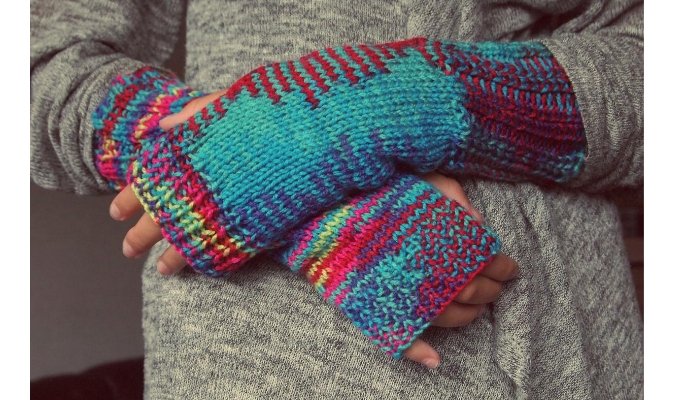Are Alpaca Gloves Warm?

When winter comes and the snow begins to blanket your surroundings, gloves aren’t always the first things that pop in your head. Cold, nippy weather will signal your favorite warm and comfy things –from snuggle blankets and chunky sweaters to plush bathrobes and fuzzy socks –but gloves rarely make it to that cozy collection. While gloves aren’t really known for their fashion statement-making abilities, their importance is undeniable. Without a trusty pair of gloves, your hands can be next to useless with your icicle fingers. From shoveling snow and walking your dog to texting and grabbing that seasonal pumpkin spice latte, you’ll need your hands warm and working. But what if we told you gloves could be both comfy and stylishly functional? Imagine protecting your hands with styles that feature beautiful colors and patterns plus functional specs such as insulation and water resistance. Enter, the alpaca gloves.
Whether fingerless or full-fingered, alpaca gloves are made from that wonderful natural fleece that’s known to be one of the softest, strongest, coziest, and best insulating fibers. Alpaca is also lightweight, hypoallergenic, odor-resistant, and moisture-wicking.
Are Alpaca Gloves Really Warm?
Alpaca fleece has evolved to become efficient thermal regulators. Alpacas survive the winters in the Andes Mountains of Peru with its amazing fiber structure. Alpaca wool is completely hollow and has these pockets of microscopic space that has the ability to hold air inside, heating via the alpaca’s own body warmth or by insulating against the heat of the sun. This extra hollow space creates greater thermal capacity which allows for more warm air to fill the fibers, providing extra warmth. Alpaca fleece, therefore, builds that perfect coat against the elements as it becomes a natural barrier that effectively keeps cold air from reaching their skin at night or in the heat during the day. This means they’re kept comfortably cool or warm. And these amazing thermal properties will work for humans too! With alpaca, you’ll never be too cold or too hot.
Other Benefits of Alpaca Gloves
Alpaca is a great alternative to more traditional wools. Not only is it three times as warm as sheep’s wool, but alpaca is also lightweight and durable.
In addition, sheep’s wool contains a naturally-occurring oil called lanolin, which some can be allergic to. While most yarns will be treated to remove the lanolin, those with allergies can have a super sensitivity to it. Alpaca fiber has no lanolin. Because of its unique fiber construction and having one of the highest moisture-wicking properties among all natural fibers, alpaca does not produce lanolin at all. This also means alpaca holds less dust, bacteria, and allergens, making it hypoallergenic. It is wind, stain, odor, and wrinkle-resistant too.
How Do You Wash Alpaca Gloves?
Since alpaca fibers are naturally constructed to resist stains, odors, and wrinkles, garments and accessories can go for extended periods between washings. But when the time comes you need to wash your alpaca gloves, here are a few tips for taking good care of them:
- Hand-washing is the gentlest and best method of cleaning your alpaca gloves. This will add years to the life of your gloves.
- Gently wash the gloves in lukewarm or cold water. Use mild soap (e.g., mild shampoo) and thoroughly rinse in water of the same temperature.
- Never twist or wring alpaca products while washing. Wet alpaca fabric can weaken and stretch out of shape. Gently press the excess water from the gloves.
- After washing, lay the gloves on a dry towel. Ease the gloves back into shape and roll up in the towel. Gently press to remove the excess water. Repeat this step using a second towel.
- On a flat surface, lay the gloves on a dry towel and leave them until thoroughly air-dried
- Once dry, avoid folding gloves so you won’t create any creases. Lay them flat in a drawer or closet shelf.
- Alpaca garments and accessories need to be stored in places where there is lots of air circulation. Never place them in vacuum or airtight bags where they can sweat and deteriorate.
- Alpaca fiber’s greatest enemies are moths. When storing your gloves in a drawer, add cedar chips or lavender to deter those pests.
Which alpaca gloves will you be rocking this winter?
Shop our large collection of alpaca products at www.shupaca.com
